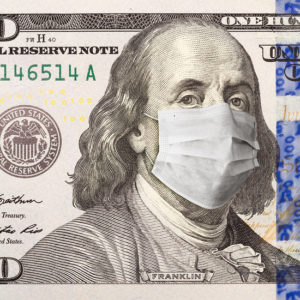As James Carville said when he was running Bill Clinton’s 1992 campaign for president: “It’s the economy, stupid.”
This quote was his way of keeping the campaign and the candidate focused on the issue that mattered most to voters and therefore, the results of the election.
Jobs and the economy is the most important issue to the American voter. Caring about any other issue is a luxury when you can’t pay the bills.
When the economy was booming, President Trump looked to have his second term locked in. The effect of the coronavirus pandemic has caused governments to close large swaths of the economy, unemployment is high and many small businesses are hurting.
The CARES Act was an attempt to stop the economic bleeding, but there still is a long way to go.
If the economy rebounds by Election Day, expect Trump to win. If the economy continues with double digit unemployment numbers and an economy in disarray, expect the president to have a difficult time securing a second term in swing states hammered by the pandemic.
One way to spur the economy is to look at ways to remove government impediments to growth. The lowest of low-hanging fruit is to both remove enhanced unemployment benefits from any future aid package and add a payroll tax holiday.
The New York Times reported last month, “With expanded jobless benefits put in place to help laid-off workers weather the pandemic set to expire by the end of July, Republicans and Democrats in Congress are at odds over whether to continue to provide substantial payments to tens of millions of Americans who are still out of work.”
Extending these benefits has the strong potential to remove the incentive of looking for work, as unemployment payouts encroach closer and closer to paying the same as average incomes in the anemic job market.
Another prospect for economic growth is Trump’s proposal to lower the payroll tax through the end of the year, cultivating the desire to go to work, increasing middle- and low-income worker’s take-home pay.
As Florida Sen. Marco Rubio’s former chief of staff Cesar Conda explained in a March Washington Examiner op-ed, “The payroll tax continues to impose a heavy economic burden on workers and small businesses” while being “highly regressive, with the bottom fifth of households paying 6.9% on average while the top 1% pay 2.3%, according to the Tax Policy Center.”
Another way to spur economic growth is to remove government policies that are anti-free market. Of note, there is one policy at the Department of Labor that is misusing statistics to falsely taint some companies as discriminators.
A little-known agency at the Labor Department called the Office of Federal Contract Compliance Programs (OFCCP) is tasked to promote affirmative action with government contractors.
The Obama administration converted this agency into a harasser of contractors by using government collected data to bully and sue companies when they disapprove of the hiring or promotion data collected from the company.
The U.S. Chamber of Commerce analyzed the agency and warned the Trump administration in 2017 that the “OFCCP is too often antagonistic toward the regulated community, ignores the myriad and effective diversity efforts undertaken by contractors, engages in overly broad and unreasonable fishing expeditions for employment data, and pursues take-it-or-leave-it conciliation efforts.”
This antagonism has allowed many of these contractors, and others watching pending lawsuits, to pause before working with the federal government as a contractor.
The economy is going to decide the presidency and whether Republicans or Democrats control the Senate.
Leaders should be more aggressive in aligning policy toward growth and to remove government policies that slow the U.S. economy from rebounding since the coronavirus economic chaos of the past few months.

